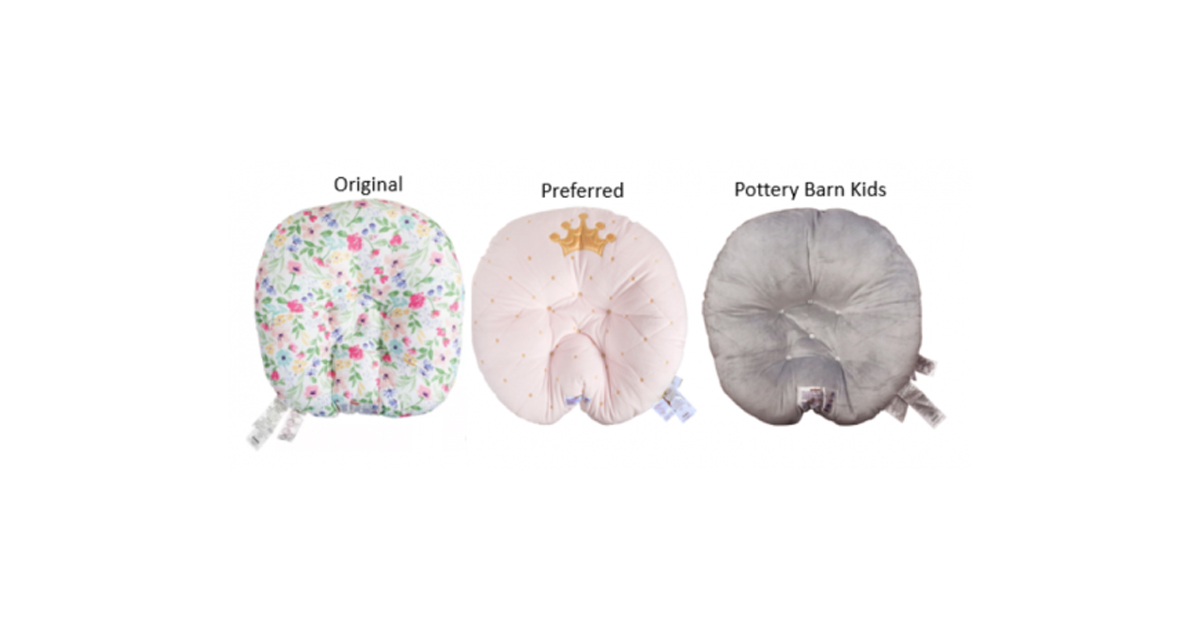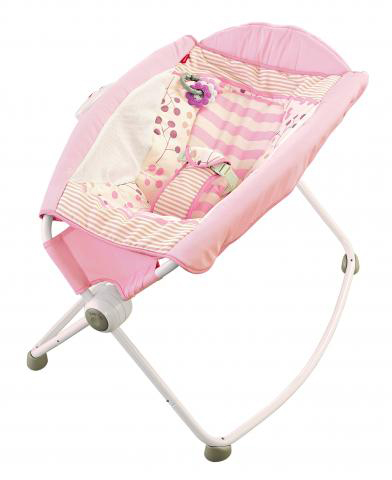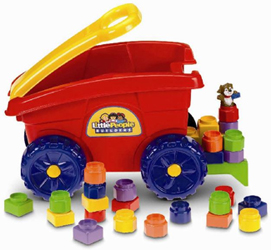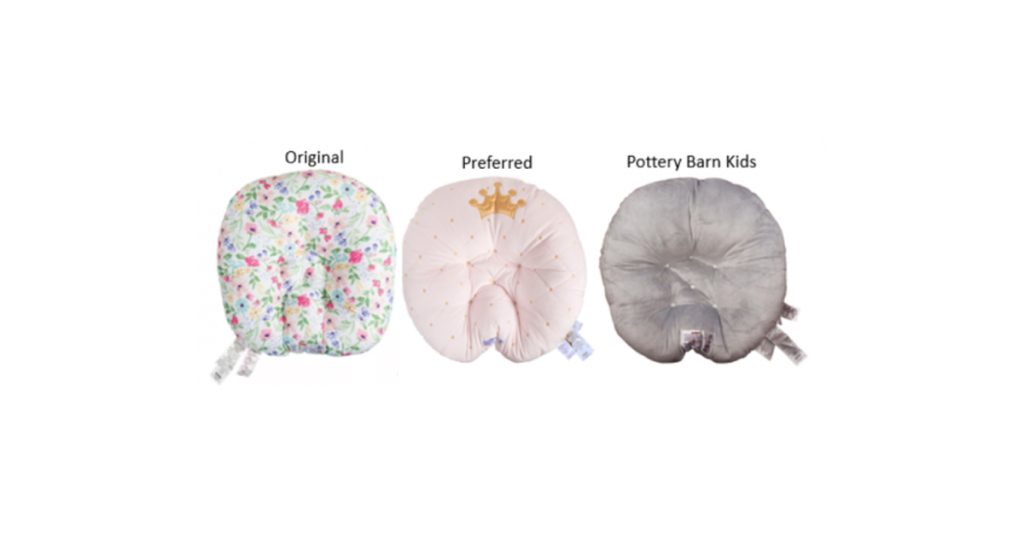Posts Tagged ‘“Fisher-Price recall”’
The Boppy Company Recalls 3.3 Million Newborn Loungers Linked to Deaths
 The Boppy Company has now recalled 3.3 million newborn loungers after the deaths of 8 infants. The U.S. Consumer Product Safety Commission (CPSC) and The Boppy Company announced the recall on September 23, 2021. Parents are urged to immediately stop using these products and to remove them from their homes.
The Boppy Company has now recalled 3.3 million newborn loungers after the deaths of 8 infants. The U.S. Consumer Product Safety Commission (CPSC) and The Boppy Company announced the recall on September 23, 2021. Parents are urged to immediately stop using these products and to remove them from their homes.
The infants reportedly suffocated after being placed on their back, side or stomach in these loungers. The deaths were reported between December 2015 and June 2020.
The recalled products include:
- Boppy Original Newborn Loungers
- Boppy Preferred Newborn Loungers
- Pottery Barn Kids Boppy Newborn Loungers
Prior to the recall, The Boppy Company sold the loungers from January 2004 through September 2021 for $30-$44. A total of 3.3 million loungers were sold in the U.S., including by Amazon, Walmart, Target and Pottery Barn Kids. Another 35,000 infant loungers were sold in Canada. The newborn loungers were sold in a number of colors and measured about 23 inches long, 22 inches wide and 7 inches high. Consumers can contact the company for a refund.
In the CPSC’s announcement, The Boppy Company said the infant lounger was not marketed as an infant sleep product and included warnings against unsupervised use. But the CPCS noted the loungers and pillow-like products are not safe near infants, who sleep so much and can quickly suffocate if they roll or turnover.
The CPSC emphasized babies should sleep on their backs, on a firm and flat surface in a crib, free from any blankets, pillows or padded crib bumpers.
The CPSC has been actively investigating the hazards of infant sleep products. On April 5, 2019, the CPSC and Fisher-Price issued a shocking consumer warning, stating that 10 infants, all 3 months or older, had died rolling over in the Fisher-Price Rock ‘n Play sleepers. Parents were initially urged to stop using the products when children turned 3 months or started to turn.
A week later, more than 30 reports of infant fatalities had emerged. On April 12, 2019, after nearly 10 years of sales, Fisher-Price issued a full recall of 4.7 million Rock n’ Play sleepers and warned parents to stop using the product.
The Washington Post later reported Fisher-Price had developed the Rock ‘n Play product after consulting one physician and had not conducted any clinical research. The newspaper would also report the number of infant deaths had risen to 90.
Infant Sleep Product Recalls and Deaths After the Fisher-Price Rock ‘n Play
After the Fisher-Price Rock ‘n Play recall, the CPSC announced several other infant sleeper recalls for products made by Kids II, Summer Infant, Graco and other companies. In June 2021, the CPSC announced another Fisher-Price recall for the 4-in-1 Rock ‘n Glide Soother, and warned that four infants had died while using the product between April 2019 and February 2020. This product went on the market in 2014 and 120,000 units were sold in the U.S.
At the same time, the CPSC announced the recall of 55,000 Fisher-Price 2-in-1- Soothe ‘n Play Gliders between November 2018 and May 2021. No fatalities were reported in association, but the CPSC warned consumers that, “Inclined products, such as gliders, soothers, rockers and swings are not safe for infant sleep, due to the risk of suffocation.”
In 2019, the CPSC released initial findings on infant sleep product research.
New Safety Standard For Infant Sleep Products
In June 2021, the CPSC approved a new federal standard for infant sleep products. Beginning next year, products intended or marketed for infant sleep must meet this new mandatory standard. Under the new standard, if an infant sleep product does not meet a current CPSC sleep standard, it must be tested to ensure the sleep surface angle is 10 degrees or less. The Fisher-Price Rock n’ Play had a 30-degree incline. Moving forward, infant sleep products must also comply with the CPSC’s safety standard for bassinets and cradles.
As the CPSC implements the new safety standard, the agency is also offering parents tips for putting infants to sleep safely. This starts with setting up your child’s sleep and play areas for safety.
Free Legal Consultation – Boston Product Liability Lawyers
The Boston product liability lawyers at Breakstone, White & Gluck have more than 100 years combined experience representing those injured or killed by defective products. If you or a loved one have been injured by a company’s negligence, learn your legal rights. Contact our law firm at 800-379-1244 or 617-723-7676 or use our contact form.
After Infant Deaths, Fisher-Price Rock ‘n Play Sleeper is Recalled

Fisher-Price has recalled its Rock ‘n Play sleeper after an investigation found more than 30 infants died while using it.
It once looked the perfect place to nap and cuddle. But this adorable product – the Fisher-Price Rock ‘n Play Sleeper – wasn’t ever safe. Fisher-Price and the Consumer Product Safety Commission (CPSC) announced the recall of 4.7 million sleepers on April 12, 2019. Parents are being urged disassemble the sleeper and stop using it. The company expects to spend the next several months processing recalls.
Prior to the company’s action, the American Academy of Pediatrics (AAP) had joined Consumer Reports in calling for the product’s removal, stating the Fisher-Price Rock ‘n Play failed to comply with its recommendations, which state infants should only sleep on flat and firm surfaces. Further, the AAP advises infants should not be left on the same surface as other bedding, toys or bumpers, which could increase the risk of infant suffocation or choking.
Fisher-Price, a division of Mattel, is asking parents to contact the company for a refund or voucher toward another Fisher-Price product. The company will offer a full refund for Rock ‘n Play sleepers purchased during the past six months.
Resources:
Fisher-Price Rock ‘n Play Recall Notice, Consumer Product Safety Commission
Mattel and Fisher-Price Recall Page for Parents
The Week of Bad Headlines for Fisher-Price
Fisher-Price and the CPSC announced the product’s recall on Friday, April 12th, following days of pressure from safety organizations. Fisher-Price had initially resisted.
On April 5, the CPSC and Fisher-Price released an initial warning and announced 10 infants had died in the Rock ‘n Play between 2015 and 2019. The infants were all 3 months or older and died after rolling over from their back to their stomach or side.
At that point, there was no recall, but parents were advised to stop placing children in the sleeper once they reach 3 months old, or earlier if they begin turning themselves over.
Days later, Consumer Reports came out with a troubling report linking the product to not 10, but 32 infant deaths since the 2009 release. The consumer watchdog called on the CPSC to immediately issue a recall of the defective product. In response, Fisher-Price said the company did not believe any of these deaths were caused by the sleeper. Rather, the company said medical and health conditions were cited as the cause in some deaths, and in other cases involved improper use of the sleeper.
Shortly after, Americans heard from the AAP: “This product is deadly and should be recalled immediately.”
Despite the AAP recommendations, Fisher-Price managed to introduce the Rock n’ Play and sold it for a decade. Before the recall, it was selling for $40 to $149 at various retailers. The product sits elevated in a canopy-like environment for sleeping and sitting and featuring a “motorized rocking motion” and musical tunes. The problem is when a baby’s head falls forward or sideways. This can block the child’s access to oxygen.
Parents should do careful research when buying children’s products. Monitor the CPSC website for warnings and recalls, as well as the Consumer Reports website. We can expect to hear more about the dangers of other sleeper products in the near future, as Consumer Reports continues its investigation. On April 11, it reported on four other child deaths linked to Kids II sleepers.
More Reading:
Fisher-Price Rock ‘n Play Sleeper Should Be Recalled Immediately, Consumer Reports
Fisher-Price Rock ‘n Play Recall, New York Times
Buying Safe Toys, Breakstone, White & Gluck Project KidSafe
Contact the CPSC About Dangerous Products and Injuries
If you are ever injured while using a consumer product, you should contact the CPSC to report the injury. The CPSC is the federal agency responsible for overseeing the recall process, releasing warnings to the public and collecting injury data. The CPSC works with manufacturers to issue product recalls.
Free Legal Consultation – Contact a Boston Product Liability Lawyer
If you have been injured, it is also in your best interests to consult a Boston product liability attorney. At Breakstone, White & Gluck, our Boston attorneys have represented clients injured by defective products, medical devices and vehicles. Prompt investigation is necessary in product liability cases and our attorneys are known for our thorough, detailed and capable investigation.
For a free legal consultation, contact our lawyers today at 800-379-1244 or 617-723-7676 or use our contact form.
Defective Toy Truck Recalled by Fisher-Price
 Fisher-Price has recalled a popular toy truck after its plastic handle has been found to pose a laceration risk.
Fisher-Price has recalled a popular toy truck after its plastic handle has been found to pose a laceration risk.
The East Aurora, New York toymaker recalled its Little People® Builders’ Load ‘n Go Wagon in cooperation with the U.S. Consumer Product Safety Commission (CPSC) and Health Canada this week. About 208,000 defective toy trucks were recalled in the United States and 2,800 in Canada. The toy trucks were sold in mass merchandise retail stores nationwide from June 2009 through July 2011 for about $25. They were manufactured in Mexico.
The toy truck is being recalled because its plastic handle has molded-in reinforcement. If a child falls on it, he could suffer a laceration.
The CPSC and Fisher-Price are aware of seven reports of personal injuries. Five reports came from children requiring surgical glue or stitches.
Consumers affected by the Fisher-Price recall can call 800-432-5437 or visit www.service.mattel.com for a free repair kit. The recall involves the wagon with the model number P8977. More information is available on the Mattel website.
Product recalls and deaths related to unsafe toys have declined in recent years, but toy-related injuries have been increasing. In 2009, 186,000 children under 15 were treated for toy-related injuries in emergency rooms, up from 152,000 in 2005.
In 2009, 12 children under 15 suffered wrongful deaths involving defective toys, a 50 percent decrease over the two prior years. Meanwhile, in 2010 there were 44 toy recalls, a significant drop from 172 in 2008.
The CPSC offers a few tips for parents: purchase age-appropriate toys, include safety gear whenever you buy sports equipment and ride-on toys and always be aware of your child’s location during play. Parents should also closely inspect toys prior to giving them to children.
Read More
Fisher-Price Recall Hits Parents, Children Hard
In the year’s largest recall, Fisher-Price has pulled more than 11 million children’s bikes, high chairs and other toys from the shelves. The recall impacts consumers in the United States and Canada. Parents in the two countries are asked to check their homes and immediately stop using any products on the recall list.
The Fisher-Price recall included nearly 50 types of products, including over 7 million tricycles such as the Hot Wheels Trike and the Barbie Butterfly Trike. These toys have a protruding part that can cut children. The company received 10 reports of children being injured.
A million high chairs sold under 23 different names were recalled. The high chairs can cut children on the legs. Seven children required stitches.
The Fisher-Price recall also included 2.8 million infant toys with inflatable balls. The balls have a valve that easily comes off and poses a choking hazard. Also recalled for creating a choking hazard were 120,000 car toys with small plastic wheels that easily come off.
For a full list of recalled toys, click here. Consumers impacted can contact the company’s recall information web page.
Fisher-Price, based in East Aurora, New York, is owned by Mattel, of El Segundo, California. The company recalled the toys voluntarily in partnership with the Consumer Product Safety Commission and Health Canada.
The Fisher-Price recall is a reminder parents need to test toys themselves and watch their children while playing. For infants and younger children, one way to judge whether a toy is a choking hazard is to take a toilet paper roll. Hold the toy or toy piece up to the toilet paper roll. If it’s small enough to slide through, it poses a hazard for your young child.
Read More


